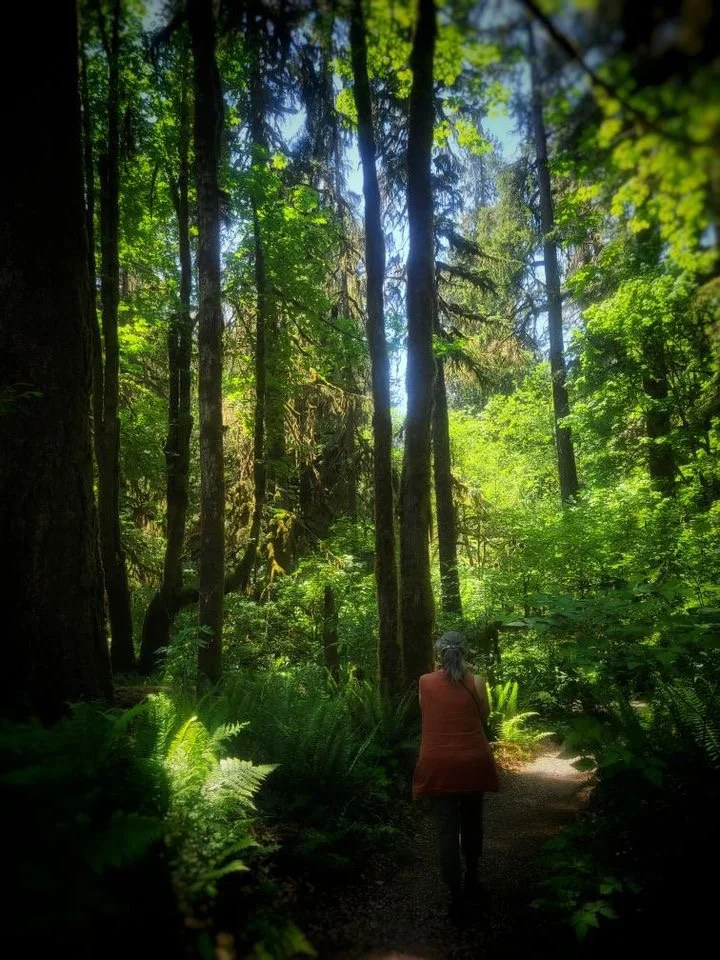Building Plant Relationships
/The power is in the plants, not in the way it was prepared.
As Herbalists, we naturally want our medicine making to be the best. We want our skills to be so terrific that no matter what we do it’s just fantastic. But it’s not about us. It’s not about our preparation skills or the perfect way we measure and put the herbs into the jar.
It’s in the plants.
The plants hold the power. And our job is to connect to the plants and to be able to allow the plants to do their work.
But we can’t make the plants do all the work.
As a conduit between the plants and the people, our job as herbalists is not only to allow the plants to do their work but also to encourage, guide, and inspire the person who is accepting the plant to be in partnership with the plant they receive.
Part of this looks like when, as herbalists, we build relationships with plants by doing practical left-brain study, taking herbal workshops, classes, or immersions, and learning scientifically proven herbal applications. That is great! This part is necessary to our craft.
And, even more neccessarily, we also go to the plant itself and sit with the plant, building a relationship in that way. We know how to identify the plant. We find it in the wild. We sit with it. And we introduce ourselves.
How do you feel after you’ve introduced yourself? How do you feel after sitting with the plant for a half an hour? Do you notice any change within yourself? Do you feel calmer? Is the sky a brighter shade of blue, do you sense the energy of nature whirring around you? (The plants aren’t going to get up and knock you on the top of the head! There will be very subtle sensory perceptions that you get from them.)
Building this relationship with the plants gets you to the point where you can go to them and say, “Hello. I’m (insert your name here.) And I am working with (who you are making the medicine for.) They are suffering from (blank.)”
For example: Hello. I am Erin. And I am working with Thomas. He is suffering from TMJ. And Thomas cannot speak his truth.
When that sensory perception within our bodies pricks up, when we get chicken skin just saying the request, that’s when we know the plant has granted us permission. Even typing this makes me want to turn this computer off and go out and gather some plants to harvest! The plants say to us: Okay. Let’s help Thomas. Thomas needs to speak his truth.
That is how the power is in the plants, not in how they are prepared. As long as we have a relationship with the plants and the plants have in some way acknowledged and given permission for us to take their life, the preparation is always moot. Especially if you have the foundational skills of herbalism.
That means that, while the books might say a textbook case of TMJ like Thomas’ needs a tincture, I could make him a compress. If my relationship with the plant and messaging from the plant in response to Thomas tells me that whatever medicine I make, even if it’s not what the book says, will be a successful application, then the power of “yes” is in the plants.
Yes, the power is still in the application, but it is predominantly in the plants, their relationship with me, and me as a conduit to Thomas.
The second part of this is don’t make the plants do all the work. How can Thomas resolve his TMJ and lack of ability to move his mouth up & down without stress and pain after we give the herbs?
I could encourage Thomas to speak his truth. I can listen to Thomas. I can listen quietly and hold space for him as he works through his ability to speak and share. Quite often, jaw tension is a response to tightening up and holding back, not allowing our voice to be heard, and clenching our teeth when we don’t know what to do next. I could give him a routine to apply one part ginger juice and 1 part sesame oil on the jaw, either topically or inside the mouth as frozen cubes.
Now, I know that I am not only harnessing the power of the plants, but also Thomas’ personal power to take control of his own health and healing. Thomas is working together with the plant so the plant does not have to do all of the work. The power is in the plants. But don’t make them do all the work.
For online learners, Herbal Medicine Making Online is now live. Made for all experience levels in mind, this at-your-own-pace online course allows you to gain the skills and confidence to make your own herbal infusions, decoctions, syrups, oxymels, tinctures, oils, and salves all in your own time with online learning.


